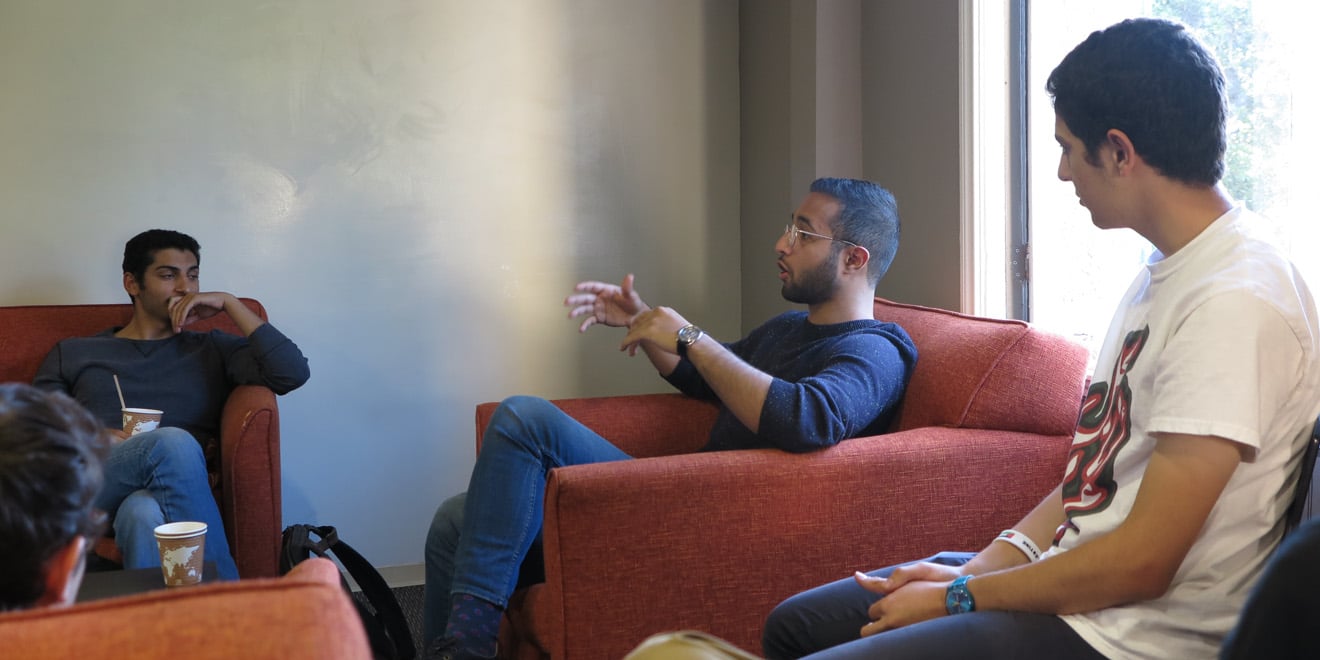Since May 2013, the Markaz community center has served as a comfortable space for Muslim students and others to connect and build relationships.
Students from the Islamic Society at Stanford University (ISSU) and the Muslim Student Awareness Network (MSAN) worked together to build a student-run collaboration in 2006. From 2006 to 2013, the groups ran student study breaks and offered chats about being Muslim at Stanford. Since then, the ISSU and MSAN have merged to form the Muslim Student Union (MSU). The MSU, along with faculty and staff, developed a proposal for a new community resource center based upon other community centers such as El Centro and the Women’s Community Center.
Vice Provost John Etchemendy approved the proposal in May of 2013. Leadership of the collaboration, along with the Arab Student Association (ASA), officially built the Markaz out of two study rooms upstairs in the Nitery.
Following the model of other community centers, the groups hired staff members to provide structural support and organize events. Mona Damluji was hired by the University as director in the fall of 2015.
“It’s been a huge year for everything the community’s been doing and for what the center has been trying to do, and so a lot has happened in a very short time,” said Damluji.
Damluji said the University offered a lot of support for the community resource center and its programs. She explained that the Markaz relates students with the Muslim-American experience but is not solely for students practicing the religion. Many of the contributors to the Markaz are neither Muslim nor religious.
Beginning next year, the Markaz staff and interns hope to formalize resources via three outreach programs: wellness, Chai Chats and Spotlights.
The wellness program, Project Pomegranate, will expand on the Markaz’s study breaks.
“It will work to create spaces for people to socially, mentally, emotionally, physically just find a way to feel good amidst the chaos of exams and the end of the quarter,” said the director.
Damluji hopes this provides students with more emotional and psychological support.
Chai Chats originated with student-run collaboration and has gained greater popularity with the expansion of community center resources, Damuji said. Faculty, alumni, activists, graduate students and administrators lead roundtable discussions on topics ranging from refugee crises to career opportunities to being Muslim in America.
Spotlights give students the opportunity to tell their story and highlight different voices in the community. Damluji said the spotlight program will be retitled “Mosaic” to represent the different pieces that make up the community. Additionally, the Markaz will also reach out to other communities in the Bay Area, such as the international rescue community that is helping refugees in California.
Along with this, the Markaz provides internship opportunities at the center itself.
Majd Quran ’19, an intern at the Markaz, says that she found a community at the Markaz to parallel her family from Palestine.
“It felt really nice to have a support system of people who could understood me on a different level than other people who I was meeting here could,” Quran said.
Quran has hosted an open mic night and attended many cultural events since the Markaz’s creation, and she said she hopes to staff at the community center next year.
Fatimah Alajaji ’18, an active student in the Markaz community, describes the Markaz as a “homey” space for familiar faces and group meetings.
Alajaji said that the Markaz provides a home for the student groups that she is active in, such as the ASA and MSU, and that she looks forward to what will come in the future.
“The Markaz has already made so much progress – it’s insane” she said.
To learn more about getting involved in the Markaz community and their upcoming events, visit markaz.stanford.edu.
Contact Gillian Brasil at gbrassil ‘at’ stanford.edu.
